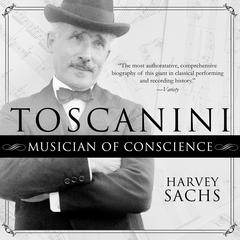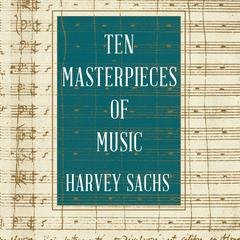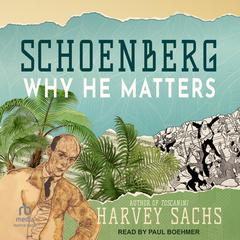 Play Audiobook Sample
Play Audiobook Sample
The Ninth: Beethoven and the World in 1824 Audiobook
 Play Audiobook Sample
Play Audiobook Sample
Quick Stats About this Audiobook
Total Audiobook Chapters:
Longest Chapter Length:
Shortest Chapter Length:
Average Chapter Length:
Audiobooks by this Author:
Publisher Description
“All men become brothers . . . Be embraced, ye millions!” The Ninth Symphony, a symbol of freedom and joy, was Beethoven’s mightiest attempt to help humanity find its way from darkness to light, from chaos to peace. Yet the work was born in a repressive era, with terrified Bourbons, Hapsburgs, and Romanovs using every means at their disposal to squelch populist rumblings in the wake of the French Revolution and Napoleon’s wars. Ironically, the premiere of this hymn to universal brotherhood took place in Vienna, the capital of a nation that Metternich was turning into the first modern police state. The Ninth’s unveiling, on May 7, 1824, was the most significant artistic event of the year, and the work remains one of the most precedent-shattering and influential compositions in the history of music—a reference point and inspiration that resonates even today. But in The Ninth, eminent music historian Harvey Sachs demonstrates that Beethoven was not alone in his discontent with the state of the world. Lord Byron died in 1824 during an attempt to free Greece from the domination of the Ottoman empire; Delacroix painted a masterpiece in support of that same cause; Pushkin, suffering at the hands of an autocratic czar, began to draft his anti-authoritarian play Boris Godunov; and Stendhal and Heine wrote works that mocked conventional ways of thinking. The Ninth Symphony was so unorthodox that it amazed and confused listeners at its premiere—described by Sachs in vibrant detail—yet it became a standard for subsequent generations of creative artists, and its composer came to embody the Romantic cult of genius. In this unconventional, provocative new book, Beethoven’s masterwork becomes a prism through which we may view the politics, aesthetics, and overall climate of the era. Part biography, part history, part memoir, The Ninth brilliantly explores the intricacies of Beethoven’s last symphony—how it brought forth the power of the individual while celebrating the collective spirit of humanity.
Download and start listening now!
"I liked the summary of the political events going on at the time Beethoven wrote the Ninth. For a full experience, I listened to the symphony as I read. My favorite line to the "Ode to Joy" part of the music is "Alle Menschen werden Bruder." Such a wonderful line! I gained good insights on the music from the book. I hadn't thought of Romanticism as revolutionary until the book made the point. For me, a good read."
— Ann (4 out of 5 stars)
Quotes
-
“Insightful…Reading this book, you feel for the composer, trying to bond with others through an astonishing symphony.”
— New York Times -
“Sachs’ enthusiasm is infectious, his knowledge impressive.”
— USA Today -
“All music lovers should run, not walk, to purchase The Ninth.”
— San Francisco Chronicle -
“Will send readers to their CD players.”
— Washington Post -
“An inspiring examination of one of music’s supreme masterpieces.”
— Pittsburgh Tribune Review -
“A revelatory ride through a creative time and four symphonic movements.”
— Dallas Morning News -
“This discussion of the cornerstone of Romantic music, whose influence extended deep into the twentieth century, is concise, thorough, and written from the heart of a great biographer, musicologist, and lover of fine music.”
— Booklist
The Ninth Listener Reviews
-
" An interesting idea following the Tosca and Rome book. Good on the background etc. Too much musical stuff, but all in all an interesting read "
— Bernie, 1/31/2014 -
" I love Beethoven, and his Ninth is one of my favorite pieces of music, so this book was a natural for me to read. The analysis of the score itself, the time period in which it was written, and the effect it had on future music is interesting and very readable. However, the author's political bias, in places where it did not belong, marred my enjoyment of this book. (How the author felt about the Vietnam War really does not help me better understand Beethoven's writing.) "
— Emily, 1/29/2014 -
" I didn't find the events of 1824 worth caring much about. The information about Beethoven and his ninth symphony were interesting enough, but this is certainly not a book I would recommend. "
— Debbie, 1/23/2014 -
" Rather disappointing that Sachs spent so much time (a whole chapter) on his own hearing of the Ninth, instead of the cultural history and context surrounding it. "
— Stefanie, 1/23/2014 -
" Interesting concept: a snapshot of the musical/artistic world at the time of the premiere of Beethoven's iconic 9th Symphony. I think I would actually have enjoyed this better as a layperson, rather than someone who has formally studied musicology. "
— Amanda, 1/20/2014 -
" He puts the context of the 9th in historical perspective. "
— Steven, 1/1/2014 -
" A love letter to Beethoven. The writing, I thought, wasn't amazing, but it did its job and the passion behind the prose was palpable. Highly recommended for anyone, like me, getting into classical music for the first time. "
— Jason, 12/24/2013 -
" I hoped for a general history of 1824, but this is very much a book about Beethoven and specifically the ninth symphony. Of little interest if you don't care about those. "
— Maynard, 12/23/2013 -
" A fine weaving together of the artistic/political/philosophical strands of the aftermath of Napoleonic Europe "
— Willowwind, 12/12/2013 -
" great for history, but i found his interpretations to be crap... "
— Joshua, 12/10/2013 -
" I was looking for a book that told about life in 1824, along with other famous people that either influenced or were influenced by Beethoven. There was only one chapter on other famous people and their impressions of Beethoven. This book mainly disected Beethoven's 9th symphony. "
— Kathryn, 12/9/2013 -
" Lame. guys got a good knowledge once he got into the music but he burned most of the book before starting that discussion. needed an editor big time "
— Jason, 10/20/2013 -
" An interesting book, but the book never really grabbed me. I wish I knew more about music and musical notation. I learned a lot about Romanticism as a movement and as a reaction to the French Revolution, Napoleon and the Restoration so I kept on reading but started to skim towards the end. "
— Mark, 8/6/2012 -
" Decent. The long details on the Ninth and its musical composition were more than I bargained for. There are better biographies of Beethoven and better canvasses of the period though I suppose this one does a decent job of tying the artists and composers into the overall period. "
— Ian, 5/25/2012 -
" I really wanted to like this book. The history and context of 1824 was very interesting, but Sachs got too much into music history. This included major digressions from the story which I found distracting. "
— Nina, 5/22/2012 -
" This book taught me a lot about music and the world of Classical/Romantic composers. I didn't have to already know a lot about this era to understand this book. Sachs lays all the context you need right on the table. A dense, heavy read, but worth it. "
— Blaise, 2/25/2012 -
" I probably would've finished this eventually, but my hub took it. The bits on Beethoven as musical innovator were fascinating. The bits about "the world" in 1824 less so. "
— Christina, 11/12/2011 -
" Harder work that I'd hoped or expected - but possibly due to my "inadequacies" as much (if not more) than those of the book. "
— Phil, 10/17/2011 -
" This was more of a history or political lesson than a study of Beethoven himself. It examines the effect of the Ninth symphony on people and events. I would have enjoyed it more if it focused a bit more on the composer. "
— Sgilbert, 9/6/2011 -
" This book taught me a lot about music and the world of Classical/Romantic composers. I didn't have to already know a lot about this era to understand this book. Sachs lays all the context you need right on the table. A dense, heavy read, but worth it. "
— Blaise, 5/14/2011 -
" Decent. The long details on the Ninth and its musical composition were more than I bargained for. There are better biographies of Beethoven and better canvasses of the period though I suppose this one does a decent job of tying the artists and composers into the overall period. "
— Ian, 4/19/2011 -
" I was looking for a book that told about life in 1824, along with other famous people that either influenced or were influenced by Beethoven. There was only one chapter on other famous people and their impressions of Beethoven. This book mainly disected Beethoven's 9th symphony. "
— Kathryn, 4/16/2011 -
" An interesting book, but the book never really grabbed me. I wish I knew more about music and musical notation. I learned a lot about Romanticism as a movement and as a reaction to the French Revolution, Napoleon and the Restoration so I kept on reading but started to skim towards the end. "
— Mark, 4/9/2011 -
" An interesting idea following the Tosca and Rome book. Good on the background etc. Too much musical stuff, but all in all an interesting read "
— Bernie, 3/8/2011 -
" There was some very interesting stuff in this book. The presentation was just really hard to get through. My favorite part was his measure by measure description of the 4 movements of the symphony. It was fun to listen to it as I read his description of it. "
— Chris, 12/21/2010 -
" He puts the context of the 9th in historical perspective. "
— Steven, 12/2/2010 -
" I really wanted to like this book. The history and context of 1824 was very interesting, but Sachs got too much into music history. This included major digressions from the story which I found distracting. "
— Nina, 9/13/2010 -
" I didn't find the events of 1824 worth caring much about. The information about Beethoven and his ninth symphony were interesting enough, but this is certainly not a book I would recommend. "
— Debbie, 3/2/2010
About Harvey Sachs
Harvey Sachs is a writer and music historian and the author of several books, of which there have been more than fifty editions in fifteen languages. He has written for the New Yorker and many other publications, has been a Guggenheim Fellow and a Fellow of the New York Public Library’s Cullman Center for Scholars and Writers.
About Patrick Egan
Patrick Egan is an audiobook narrator whose readings include Miguel Nicolelis’ Beyond Boundaries, Peter Guber’s Tell to Win, Harvey Sachs’ The Ninth, and numerous others.


























